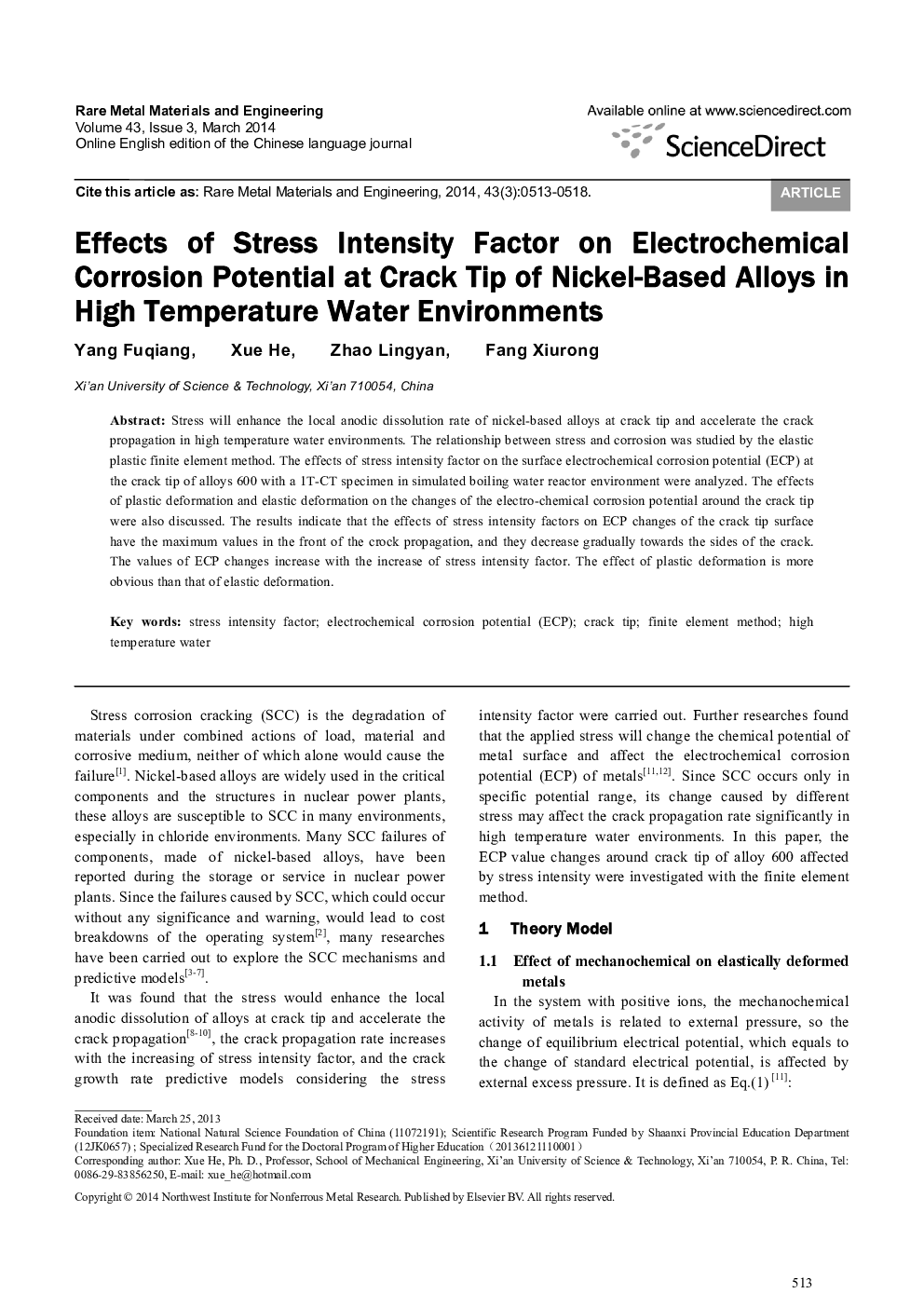| Article ID | Journal | Published Year | Pages | File Type |
|---|---|---|---|---|
| 814935 | Rare Metal Materials and Engineering | 2014 | 6 Pages |
Stress will enhance the local anodic dissolution rate of nickel-based alloys at crack tip and accelerate the crack propagation in high temperature water environments. The relationship between stress and corrosion was studied by the elastic plastic finite element method. The effects of stress intensity factor on the surface electrochemical corrosion potential (ECP) at the crack tip of alloys 600 with a 1T-CT specimen in simulated boiling water reactor environment were analyzed. The effects of plastic deformation and elastic deformation on the changes of the electro-chemical corrosion potential around the crack tip were also discussed. The results indicate that the effects of stress intensity factors on ECP changes of the crack tip surface have the maximum values in the front of the crock propagation, and they decrease gradually towards the sides of the crack. The values of ECP changes increase with the increase of stress intensity factor. The effect of plastic deformation is more obvious than that of elastic deformation.
